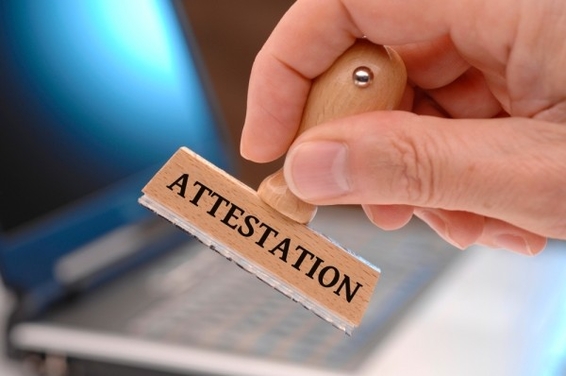Marriage certificate attestation is a crucial process for anyone planning to settle abroad with their spouse or for visa applications requiring proof of marriage. Many countries, especially those in the Gulf region, the USA, UK, Canada, and Europe, require that marriage certificates be legally verified to establish the legitimacy of the relationship. This article provides a comprehensive guide on how to attest your marriage certificate for visa approval, including the importance of each step and tips for a smooth attestation process.
Why Is Marriage Certificate Attestation Necessary?
Marriage certificate attestation serves as official verification of your marriage, confirming that your relationship is legally recognized in your home country. This process is essential when:
- Applying for a Family Visa: Most countries require proof of a marital relationship to approve family reunification visas or dependent visas.
- Applying for Residence Permits: Certain countries mandate that married couples prove their union through an attested certificate when one spouse is applying for a residence permit.
- Educational and Employment Visas: If an accompanying spouse is listed as a dependent, an attested marriage certificate may be required to confirm the relationship.
Marriage certificate attestation confirms that your marriage document is legitimate, protecting both parties from potential issues related to fraud or impersonation, and providing peace of mind to immigration authorities.
Step-by-Step Guide to Attesting a Marriage Certificate
The attestation process can vary slightly depending on your country of origin and the destination country’s requirements. However, most countries follow a structured process that involves the following steps:
1. Obtain a Certified Copy of Your Marriage Certificate
Before beginning the attestation process, ensure you have a certified copy of your marriage certificate. Most countries require the certificate to be issued by the relevant authority, such as a local registrar, union council, or civil authority. If your marriage certificate is handwritten, it may not be acceptable for attestation. Request an official printed and certified copy if necessary.
2. Notarization
Notarization is typically the first formal step in the attestation process. A notary public will review the marriage certificate, confirming that it is authentic and legally binding. This step usually includes:
- Verifying the document’s originality.
- Adding a notary seal and signature to validate its authenticity.
The notary public essentially serves as the first level of verification, indicating that the document is ready for further attestation.
3. Attestation by Home Department or Relevant Local Authority
After notarization, the next step is to submit your marriage certificate to the Home Department or an equivalent authority within your state or province. The Home Department verifies that the notary’s attestation is valid and that the document is genuine and acceptable for foreign use. This department may have additional requirements, such as submitting original identification documents of both spouses or providing witness statements to confirm the marriage’s validity.
Each country’s Home Department or State Authority may have unique processes, so it’s essential to check with local authorities about specific requirements.
4. Attestation by the Ministry of External Affairs (MEA)
The Ministry of External Affairs (MEA) is responsible for authenticating documents intended for international use. Once your marriage certificate is verified by the Home Department, submit it to the MEA for attestation.
The MEA will affix an official stamp or seal on the certificate, confirming that the marriage certificate is an authenticated and recognized document. MEA attestation is one of the most critical steps, as it indicates that your marriage certificate has been vetted by the national government and can now proceed to embassy verification.
5. Embassy Attestation
Embassy attestation is the final step in the process. The embassy of the destination country in your home country reviews the marriage certificate, along with the stamps and seals from the notary, Home Department, and MEA. Embassy attestation validates that the marriage certificate meets the standards required by the destination country.
Different embassies may have specific guidelines, including translation requirements or fees. For example, countries with languages different from your own may require the marriage certificate to be translated and notarized in the official language of the destination country. It is advisable to check embassy requirements well in advance to avoid last-minute delays.
Special Considerations and Common Issues in Marriage Certificate Attestation
While the steps above are standard, there are additional factors to consider, which may affect the attestation process:
-
Translation Requirements
If your marriage certificate is in a language other than English or the official language of the destination country, a certified translation may be required. Most embassies accept translations done by certified translators. Make sure to have both the original and translated versions attested. -
Union Council or Local Government Attestation
Some countries require initial attestation from local authorities such as the Union Council or municipality. This additional layer of verification can vary depending on local regulations and the destination country’s requirements. -
Processing Time
The time required for attestation can vary widely. Each department (notary, Home Department, MEA, and embassy) has its own processing timeline. Embassies, in particular, may take longer during peak travel seasons or due to document verification backlogs. Plan to start the attestation process well before your intended travel date. -
Fees
Attestation fees vary based on each department and the destination country. Some embassies may charge a higher fee for expedited services, so inquire about fee structures at each step. -
Hiring Attestation Services
Professional attestation services can simplify the process, especially for people unable to visit multiple offices. These services manage each step, including submitting documents to various departments and ensuring all procedures are followed correctly. Ensure you choose a reputable attestation service with positive reviews and a transparent fee structure. -
Checking for Updates and Changes
Immigration policies and documentation requirements can change frequently. Stay informed by visiting the embassy website of your destination country or consulting with a verified attestation agency to ensure you meet all current requirements.
Tips for a Smooth Attestation Process
Successfully attesting your marriage certificate for visa approval requires patience and careful attention to detail. Here are some tips to streamline the process:
-
Start Early: Begin the attestation process at least three months before your expected travel date to avoid last-minute delays.
-
Prepare Extra Copies: Make several copies of your marriage certificate and other documents, as some departments may require duplicates for their records.
-
Organize Your Documents: Keep all your documents, including ID proofs, marriage certificate, and passport copies, organized and readily accessible.
-
Double-Check Requirements: Some countries have specific attestation requirements that may differ depending on your nationality or the type of visa. Contact the destination country’s embassy to confirm these details.
-
Use Registered Services: If mailing documents to any department, always use registered mail services to track your documents and ensure safe delivery.
-
Keep Digital Records: Store digital copies of each attested version of your marriage certificate for your records, which can be useful if you need to provide proof of attestation in the future.
Conclusion
Marriage certificate attestation is a complex but manageable process with the right approach. By understanding each attestation step—from notary public verification to embassy attestation—you can ensure that your marriage certificate is correctly attested and acceptable for visa approval. Taking the time to follow each step carefully will help you avoid unnecessary delays and ensure a smooth transition as you prepare for your new life abroad.
Whether you handle the attestation yourself or hire a professional service, always remain informed about the latest requirements for your destination country. Your attested marriage certificate will then serve as a valuable document for a smooth visa application process, bringing you one step closer to reuniting with your spouse or starting a new chapter together abroad.




